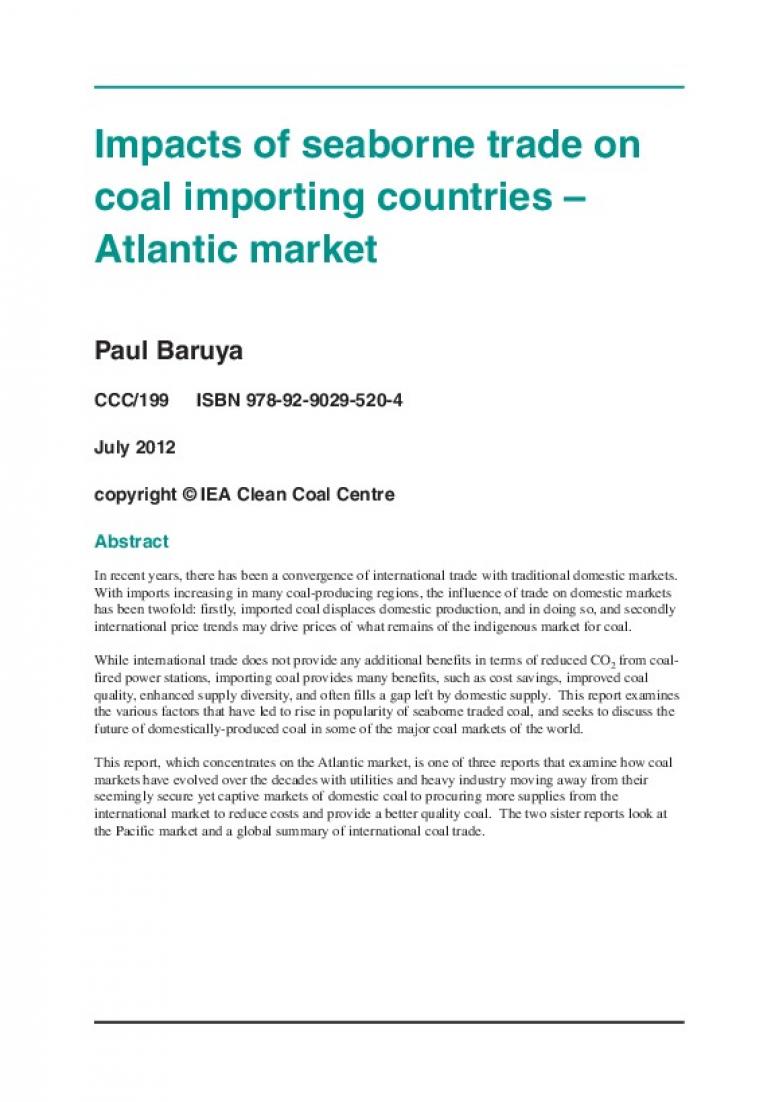CCC/199 ISBN 978-92-9029-520-4
July 2012
copyright © IEA Clean Coal Centre
Abstract
In recent years, there has been a convergence of international trade with traditional domestic markets.
With imports increasing in many coal-producing regions, the influence of trade on domestic markets
has been twofold: firstly, imported coal displaces domestic production, and in doing so, and secondly
international price trends may drive prices of what remains of the indigenous market for coal.
While international trade does not provide any additional benefits in terms of reduced CO2 from coalfired
power stations, importing coal provides many benefits, such as cost savings, improved coal
quality, enhanced supply diversity, and often fills a gap left by domestic supply. This report examines
the various factors that have led to rise in popularity of seaborne traded coal, and seeks to discuss the
future of domestically-produced coal in some of the major coal markets of the world.
This report, which concentrates on the Atlantic market, is one of three reports that examine how coal
markets have evolved over the decades with utilities and heavy industry moving away from their
seemingly secure yet captive markets of domestic coal to procuring more supplies from the
international market to reduce costs and provide a better quality coal. The two sister reports look at
the Pacific market and a global summary of international coal trade.


